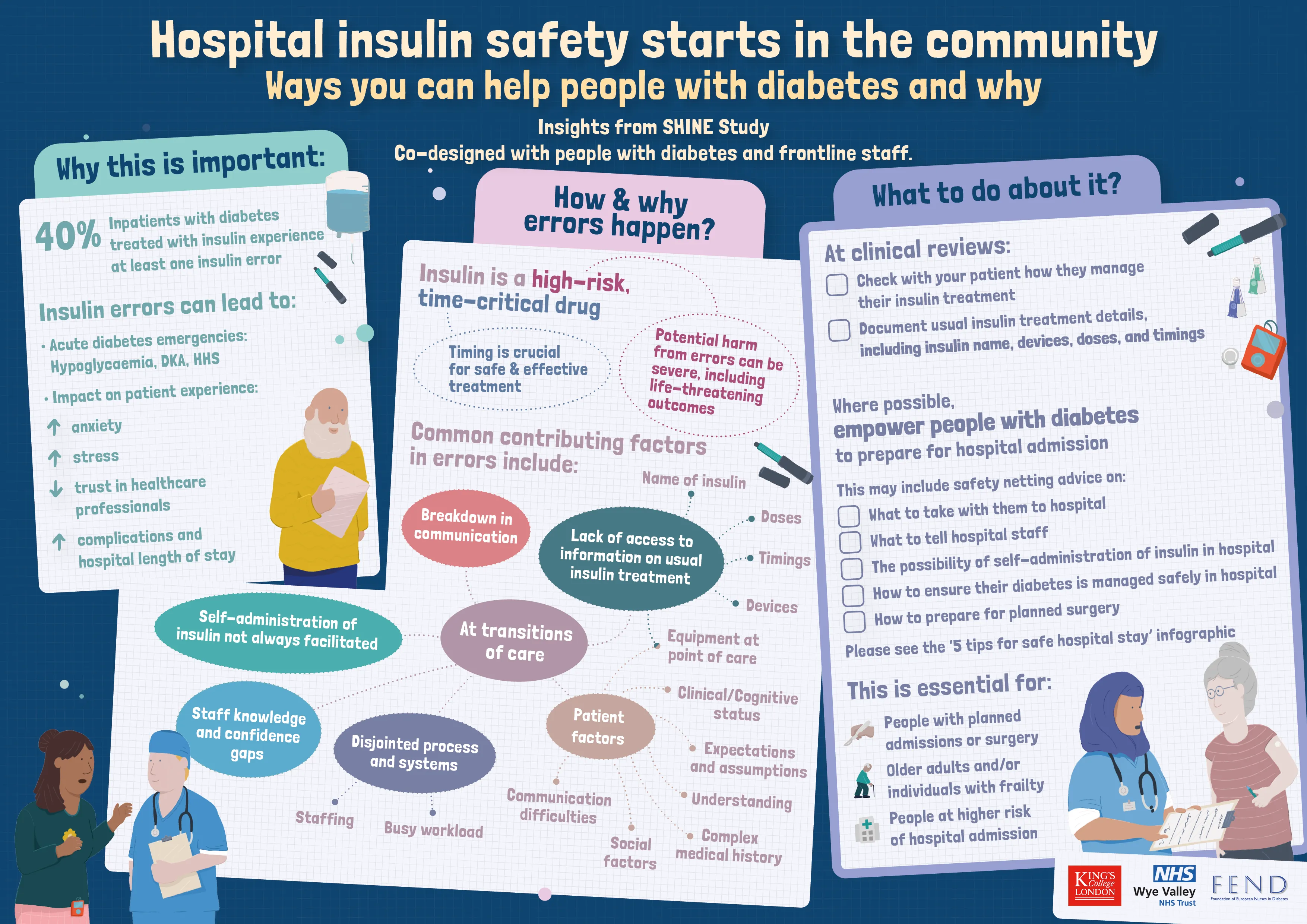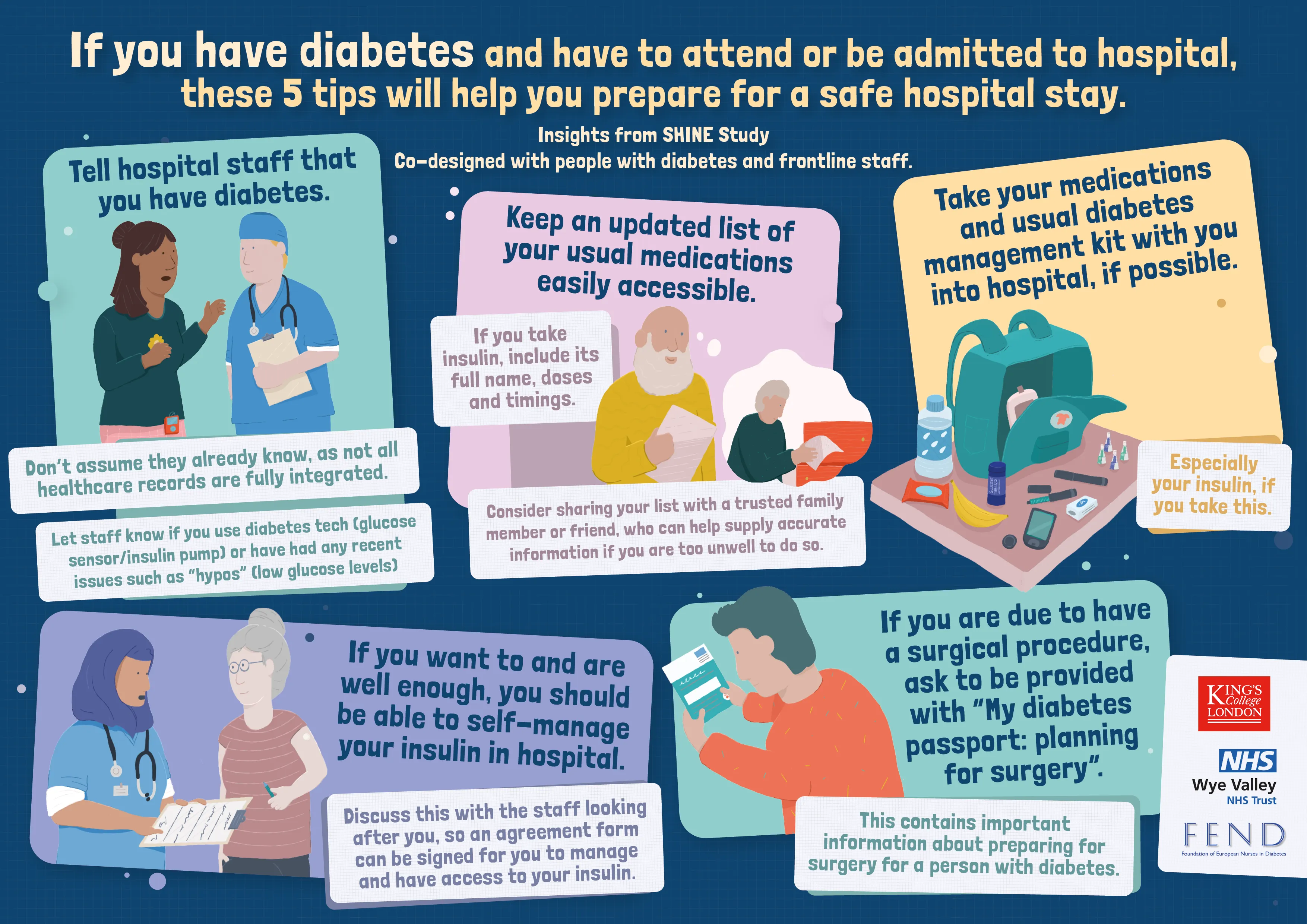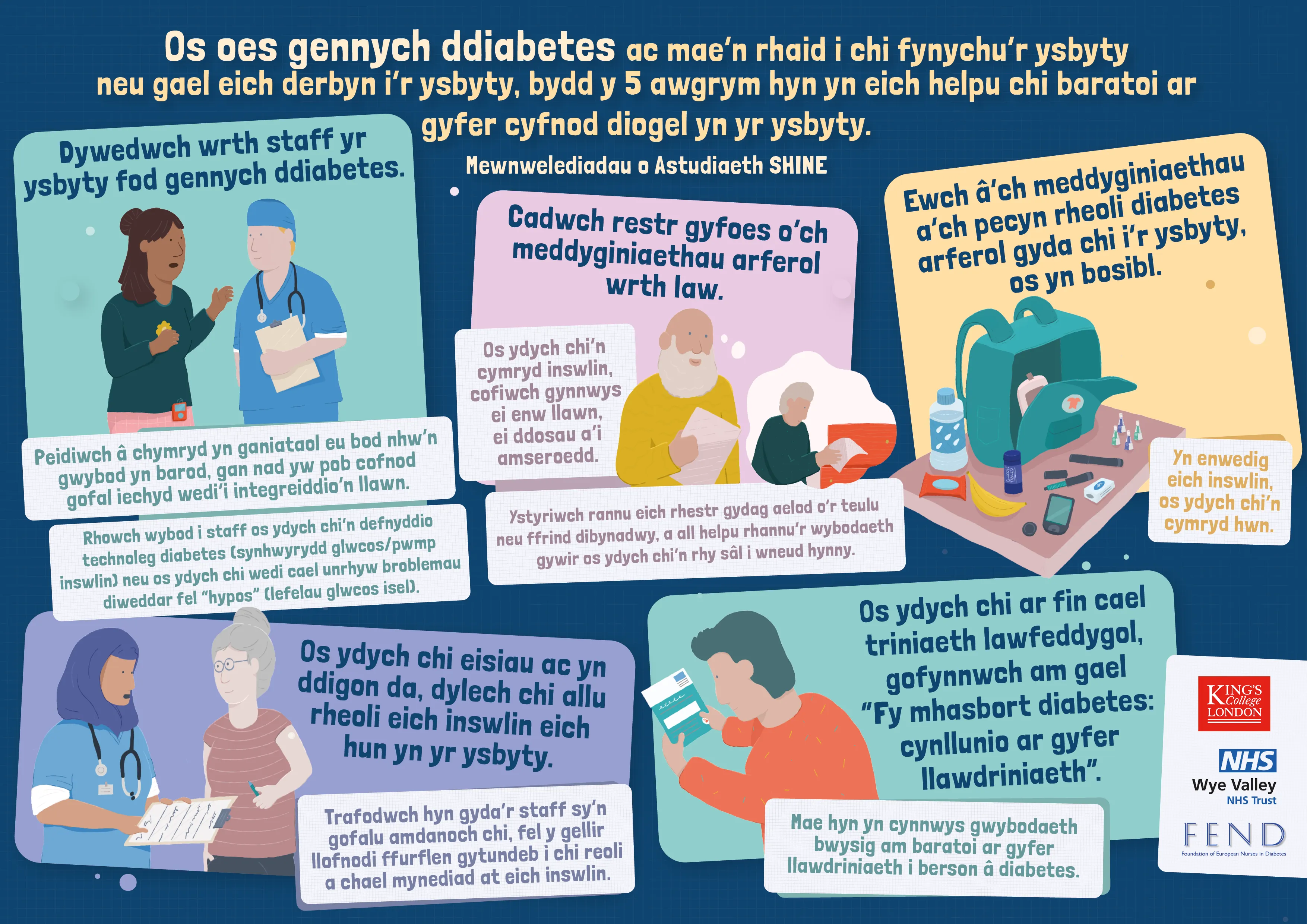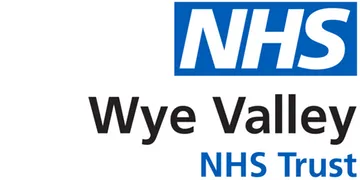Safe hospital insulin use for older adults, with or without frailty, undergoing surgical hospital admission
SHINE is a co-design study with older adults with diabetes and multiprofessional staff working across perioperative care, developing an intervention to improve hospital insulin safety.
Insulin is a high-risk and time-critical drug which is essential in the management of many people with diabetes. Despite many interventions, national audit data has shown that up to 40% of inpatients with diabetes treated with insulin experience at least one insulin error.
Insulin errors can lead to significant patient harm. This includes development of dangerously low or high blood glucose levels. Errors can impact on inpatient experience. They can cause increased anxiety and stress, complications and length of stay.
Having good blood glucose levels before, during and after surgery is important to reduce risks of complications. Insulin often plays a key role in achieving this. Many factors contribute to insulin errors. Older adults may have characteristics which increase their risks for insulin error. There has been a lack of involvement of people with diabetes in the development of theory driven interventions to enhance hospital insulin safety. This novel study will work with staff and older adults with recent experience of hospital admission at one NHS site. Together, they will identify priorities and components to develop in an intervention to improve hospital insulin safety.
Aims
- To understand the experiences and perspectives of older adults with diabetes and hospital staff managing insulin during a surgical hospital admission.
- To bring together older adults with diabetes with or without frailty, multiprofessional staff and researchers in a co-design process to identify components to develop the conceptual model of a system-based intervention to improve hospital insulin safety.
Tools developed as part of SHINE Study
Building on the insights of SHINE Study, we have co-designed with people with diabetes and frontline staff, two tools to facilitate empowerment and increased preparedness for people with diabetes.
Hospital insulin safety starts in the community: ways you can help and why
This tool is aimed at healthcare professionals working in the community and outpatient settings. It raises awareness of the complex problem of insulin errors and how these can impact on people with diabetes.
It highlights some of the system contributing factors to errors and provides guidance on simple actions clinicians can take to mitigate these and build system resilience, through increasing accessibility of information at transitions of care and increasing patient empowerment.

Five tips to prepare for a safer hospital stay
This tool is aimed at people with diabetes and is aimed at empowering them with information to support increased preparedness for hospital admission. It is available as an infographic and as an animation


For those who would like to use these resources in their own practice or for their own purposes, please get in touch at the email address above.
Impact
Research undertaken as part of SHINE Study:
- Was awarded the Rowan Hillson Inpatient Diabetes Award 2025 with its submission entitled: Empowering people with diabetes to prepare for a safer hospital stay
- Has been selected as a Finalist for the category Insulin Safety Week Excellence Award at the Quality in Care (QiC) Diabetes 2025 Awards.
Our Partners

Wye Valley NHS Trust

Foundation of European Nurses in Diabetes (FEND)
Principal Investigator
Investigators
Affiliations
Funding
Funding Body: Foundation of European Nurses in Diabetes (FEND)
Amount: £150,000
Period: March 2024 - March 2025



